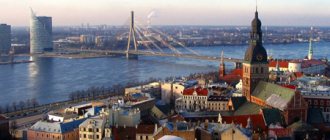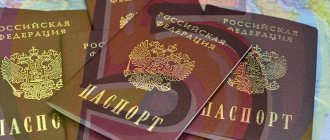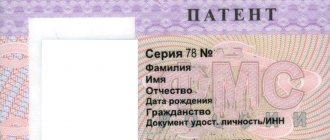Pros and cons of moving to Croatia in 2021
Before you decide to move to any country, you need to weigh all the pros and cons so that the dream of a better life does not turn out to be a complete disappointment. Croatia is an attractive country for emigrating from the Russian Federation, especially for those who have visited it at least once. However, you should not confuse the impressions received during your vacation with permanent residence in Croatia. The advantages and disadvantages of moving are summarized in a table.
| Advantages | Flaws |
| Excellent climatic conditions. The climate can be roughly divided into dry and hot with mild winters on the coast and cooler inland. Everyone can choose a place of residence in more suitable conditions. In any case, in winter the temperature does not drop below - 5C (except in mountainous areas), and positive temperatures reign on the coast all winter. | Difficult to obtain a residence permit. To obtain a residence permit and legally reside in the country for several years, you must have good reasons and financial well-being (paperwork is quite expensive). |
| Excellent ecology. The air is fresh, the sea is clear and clean. Throughout the country there are protected areas untouched by humans - their total area is about 8%. This may be why the average life expectancy of the population in Croatia is higher than in Russia and is approximately 78 years. | Price level. The cost of food and clothing is quite high; local residents often go to neighboring countries for shopping. The standard of living in Croatia is considered the highest among the Balkan countries. However, prices for accommodation are disproportionately high compared to the minimum wage in the country – 400 €. |
| Croatian. In pronunciation it is close to Russian, so it is quite easy to learn. In addition, a significant part of the population speaks Russian, so there is practically no language barrier. | Taxes. The duties, which are deducted from salaries monthly, are high and amount to approximately 1/3 of earnings. Many note that they do not see where and what the funds collected by the state are going to. |
| Good attitude of Croats towards Russians. Locals are generally quite welcoming and friendly towards immigrants, | Corruption. Corruption and “connections” are highly developed here, just like in Russia. |
| Lifestyle. Life is measured, unhurried. No hustle and bustle. | No central heating. But this minus is typical for many European countries. |
Russians in Croatia: facts and reviews
The results of the latest census of Croatia, which was carried out in 2011, indicate a quantitative indicator of Russian immigrants - 1 thousand 279 people. Moreover, all the enumerated persons named their nationality specifically - Russian . Meanwhile, if you look at the statistics on the growth of Russian migrants relative to a specific time period, the results change from plus to minus and back.
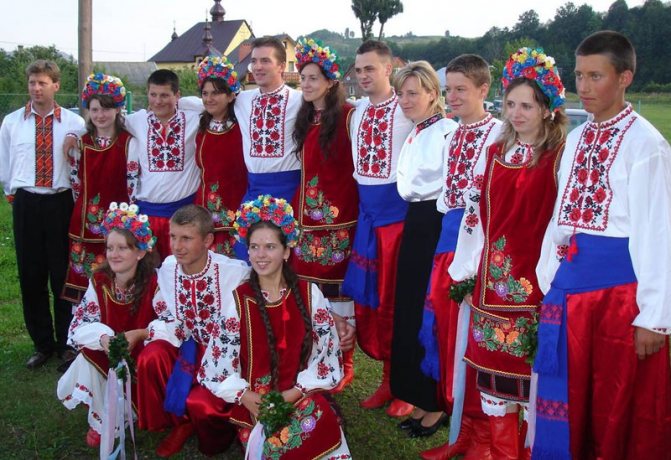
Folklore group made up of Russian-speaking immigrants from Croatia
Thus, several decades ago (1930s) there were almost 10 thousand Russians in Croatia. Closer to the present day (1993), this figure has dropped to 700 people. Currently, the increase in Russian immigrants in Croatia is about 50%. That is, the number of Russian immigrants with Croatian citizenship during this period of time increased from 700 to 1,300 people. The bulk of those who arrived were Russian women who became wives of Croatians . The largest community of Russian immigrants is located in the city of Zagreb.
Which Russian is moving to live in a Balkan country?
The audience of emigrants from Russia is diverse:
- Chemists, doctors, pharmacists.
- Mathematicians, academics, professors.
- Theater experts, journalists, TV presenters.
- Photographers, poets, writers.
- Athletes, coaches.
A certain separate backbone of immigrants consists of the “cream” of Russian society, endowed not so much with rare professional qualities, but with a lot of money. Having capital is an effective lifesaver for immigration to Croatia .
...I always had the feeling that people were going to Croatia either to get married or to buy real estate. In fact, there are also married couples. Often they are with children. They don’t need a luxury villa on the sea, but they need a cozy, quiet place to live...
Zagreb
https://zagrebchanka.livejournal.com/162209.html
Of course, Croatia is rich in more than one Russian intelligentsia and nouveau riche. Integration with the EU opened the door to both Russian business and the working class. Business immigrants also contribute to the migration growth of the Balkan country . But it should be noted that business immigration requires compliance with some interesting conditions. This is how forum users describe these conditions:
…The path to your business is simple. You need to open a company with an authorized capital of 100,000 kuna (€13,500). It is mandatory to hire at least three local workers per year and pay them a salary of at least €100 per month. These are the requirements of Croatian laws for a foreigner who wishes to obtain a residence permit...
Julia
https://croatia.ru/forum/messages/forum31/topic209/message2658/?sphrase_id=1482#message2658
Video: how to start a business in Croatia
Another immigration route is marriage to a Croatian citizen . Today, marriage immigration continues to trend upward. Marriage emigration from Russia to Croatia provides a quick solution in terms of registering permanent residence and obtaining Croatian citizenship. This is perhaps one of the easiest ways to immigrate to Croatia.
…I visited different cities of fabulous Croatia. I'm just in love! There are nice, beautiful, smiling people here. Society lives in peace and confidence. The Adriatic Sea is something extraordinary! Croatian language is understandable to Russians. I communicated with Croatian colleagues without any problems. Now I have one dream - to find my other half there...
Irina
https://euro-date.ru/zamuzh-za-chorvata
Russian societies, communities and the Russian diaspora
The small group of Russians in Croatia does not give reason to talk about the existence of a diaspora. Nevertheless, there are societies and communities in the country that are trying to preserve the Russian way of life, elements of mentality, and traditions. Again, the main burden of organizing such communities lies, as a rule, on women’s shoulders. Be that as it may, on Croatian soil, in places where Russians live compactly, there are organizations, foundations, schools, and communities.
Thus, in the territory of Međimur County, in the north of Croatia, the Russian society “Kalinka” operates. The organization is quite active, despite the small number of Russians in this region (no more than 100 people). People have heard about the Russian “Kalinka” all over Croatia . Representatives of the society often travel around the country, bringing a piece of Russian culture to Croatian society.
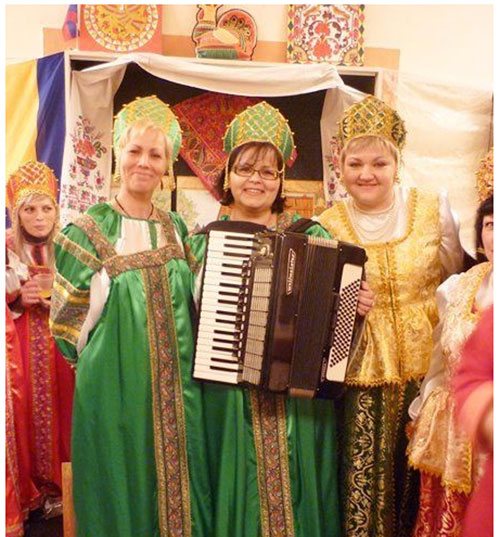
The ensemble "Kalinka" is preparing for another tour of Croatia
In the city of Zagreb, where the number of Russian-speaking citizens is quite high, the “Society of Russian Language and Culture” operates. This society unites not only Russians, but also Belarusians, Ukrainians and other Russian speakers. The organization has a charter and has all the properties of a social structure.
In the spring of 2008, a conference of Russian compatriots was held in Zagreb . The event was attended by representatives of seven relatively large public organizations. Among them were also representatives of three commercial schools in Zagreb, where the Russian language is actively taught. The result of the conference was the creation of KSORS - a coordinating council of organizations of Russian compatriots.
...We, representatives of Russian compatriots in Croatia, discussed at the Conference questions about the place of compatriot organizations in Croatian society, their interaction with the Croatian authorities, as well as the problems of preserving the Russian language in mixed Russian-Croatian families. We are ready to more actively work to preserve Russian culture, spiritual identity, popularize the Russian language and traditions...
https://www.croatia.mid.ru/soot/soot4_1.html
How do Russians adapt to new living conditions in Croatia?
Immigrants from Russia, in fact, like any others, are forced to adapt to living conditions in Croatia. At the same time, it is easier for Russian immigrants to adapt to the linguistic environment, and to the everyday environment as well. The Croatian language has some similarities with Russian, and the living environment, although different, is not as radical as in other European countries.
The problem point in the process of adaptation of a Russian immigrant is employment . It is especially difficult for women to work. Therefore, many Russian women, who in the past had a good profession, are forced to make do with odd jobs or do not work at all. However, for married women this is not such a big problem, except for dependence on their husband and the hardships of home life.
...I am ready to agree that Croats are not bad fathers (I often meet men with children on the street). I doubt the rest. Over time, I learned how practical and stingy they are, like all Europeans. True, I don’t presume to talk about everyone without exception...
Lena
https://www.etrips.ru/2011/08/zhizn-v-xorvatii-stoit-li-emigrirovat-v-xorvatiyu/
And yet, it is much easier for Russian people to start living in a place where there is a neutral attitude towards any nation. Where a business is registered within a week . Where you can easily buy real estate and live in it for up to 90 days for six months, registering as a temporary resident.
Where do Russians work in Croatia and how much do they earn?
Since Croatia is mainly a country of tourism, working Russian immigrants can be found in the tourism sector. There are, of course, isolated cases of journalists or engineers being employed at a shipyard, but these are isolated situations. The tourism sector in Croatia usually provides seasonal work. Open vacancies - guides, hotel employees, cafe workers, beach cleaners, etc.
…I am Svetlana. I have been living and working in Croatia for 24 years. Place of work: Dubrovnik. I have been working as a guide since 1996. I gained a lot of experience, but every excursion is always something new for me...
Svetlana
https://excursio.com/ru/pgeo/croatia/
Salary directly depends on the specialty and the amount of work performed. The average earnings of Russian immigrants are €400–500 per month . At the height of the season, the salary can rise to €700. Holders of the country's citizenship can expect to earn up to €950–1200 per month. This information is relevant for the cities of Zagreb, Split, Rijeka, located on the coast.
Russian pensioners in Croatia
Russian pensioners in Croatia should probably be divided into two categories. The first is pensioners who retired directly to Croatia. The second is pensioners from Russia who bought real estate in Croatia and live under the terms of temporary residence (temporary residence).
Pensioners of the first category (permanently residing in Croatia) have an old-age pension amount almost similar to the Russian one . At the same time, prices for products and services in Croatia are close to European ones.
…I received 17,900 (1,675 kuna) in rubles. Last month they increased a little. The amount of the pension depends on compensation. They compensate for electricity, gas, heating, etc. The maximum is 20,500 rubles. (1900 kn)…
Sasha
https://www.adrionik.ru/forum/viewtopic.php?f=42&t=536

When there are no worries, Russian pensioners in Croatia can go in for sports
The average officially declared pension payment is 2,380 kuna . Pensions in Croatia are calculated based on length of service. For each year 59 kn. For example, a pensioner with 25 years of work experience will receive approximately 1,415 kuna. The accrual for a pensioner with 45 years of work experience will be approximately 2,545 kuna. The average earnings are also taken into account. If the amount exceeded the average salary by more than three times, pension payments are tripled. There are additional benefits and allowances for persons who have served the state.
...As pensioners, we usually buy food from chain stores. We buy vegetables, fruits, meat, milk, and fish from the market. We often go directly to collective farm fields. There is also trade there, and buying vegetables and fruits is cheaper...
Alexei
https://prian.ru/pub/22454.html
Pensioners from Russia who bought real estate in Croatia rarely live in the country for a full calendar year. Usually they come for a temporary residence permit (for 90 days) in the summer, use the funds received from renting real estate for vacation, and at the end of the warm season they leave for Russia. The property is being rented out again.
The total income of such pensioners is a Russian pension plus rental finance . However, legally renting out a home is a tricky subject in Croatia, with tax authorities and high fees involved. It is also worth keeping in mind: if a Russian pension is transferred in foreign currency to a pensioner’s account in Croatia, then 25% of the tax on the transferred amount is deducted.
How do they treat Russians?
Official Russian authorities assess Russian-Croatian relations positively . Trade turnover between countries is increasing, cultural ties are becoming closer. It is planned to open a Russian-Croatian cultural center in Zagreb.
...We have always said that both Russia and Croatia need visa abolition. However, the European Union is in no hurry to abolish the visa regime. Russia, for its part, is doing everything to ensure that Croats are issued visas without queues or delays...
https://www.croatia.mid.ru/interview/int2014–12–09.html
Among the common people there is also a good attitude towards Russians . This attitude is no worse or better than towards other nations. Croatia today is visited by citizens of various countries. One might say that a unique international group of immigrants has emerged. From this group, Croats do not try to single out anyone or treat them in a special way.
…I just recently returned from Croatia! The attitude towards Russians is excellent! For some reason, I met fewer Russians in Croatia than, for example, in Montenegro. Observed cultural behavior and corresponding attitude...
Guest
https://croatia.ru/forum/forum12/topic424/
...People in Croatia are very sociable and responsive. Almost everyone understands Russian. There is no intrusiveness, like the Turks, but they like to talk. I was especially surprised that some Croats call us Russians - a fraternal people. To be honest, I didn’t expect to hear this...
Irka83
https://otzovik.com/review_1903433.html
Methods of immigration to Croatia for permanent residence
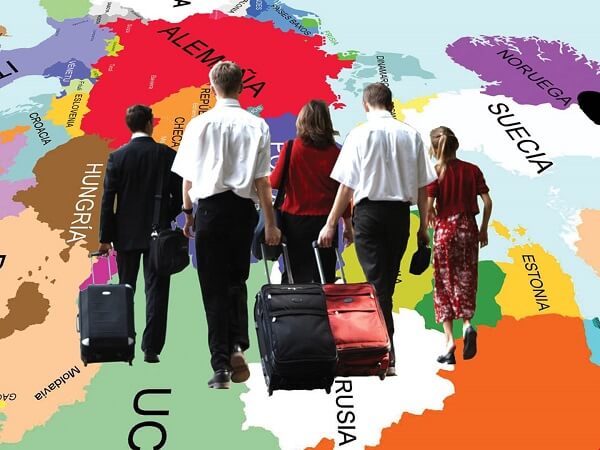
Emigrating from Russia to the European Union is a rather difficult task, requiring serious investments and thoughtful decisions. Since Croatia is part of the EU, the requirements imposed by local migration authorities are not much different from the rules of other member countries.
In 2021, there are several standard methods that will allow Russians to move to Croatia for permanent residence legally.
Buying a property
There is no point in investing in real estate with the expectation of obtaining a residence permit in Croatia; owning a home or any other object in the country is an absolutely unreliable basis for obtaining a residence permit.
When purchasing even the most expensive Croatian real estate, there will be no privileges for the owner. Of all investors applying for a residence permit, only half are given a residence permit. Therefore, people who have sufficient funds try to open their own business on Croatian soil.
Marriage
Marriage with a citizen of Croatia is the basis for obtaining a residence permit and citizenship in the future. Citizenship is acquired after 5 years of legal marriage. Such conditions have provoked the high popularity of fictitious marriages, which are concluded only for the sake of obtaining a residence permit. But the migration authorities have developed their own system of protection against fictitious marriages - interviews and checks that will help identify the real reasons for entering into a marriage.
An application is submitted to the local registry office 1-1.5 months before the desired wedding date. The authorized person is provided with copies of identity documents of the spouses and witnesses, and birth certificates of the spouses. In addition, the foreigner must have a certificate stating that he is not married. It is translated into Croatian by a sworn translator and legalized by affixing an apostille.
Business immigration
The most common option for emigrating from the Russian Federation to Croatia is to open your own business. Since Croatia joined the European Union, the rules for accepting immigrants have become stricter, but one of the reliable ways for them is business. The authorized capital of the company must be at least 2,800 €, but the more the better. Registration of a company costs around 4,000 €. The business owner must provide the migration services with a detailed business plan and information about the direction of activity. The newly opened company must generate income, and the owner is obliged to pay all state taxes and maintain reports.
There are other requirements for new companies whose founders are foreigners. For example, it is necessary to make it difficult for Croats, and their number should be greater than the number of foreign employees. The salary of hard-pressed Croatians should be above average. A residence permit is issued to a businessman for a period of 1 year. Shortly before the expiration date, the document can be renewed if the company continues to exist.
Employment
Finding a job in Croatia is not easy - the country is interested in attracting highly qualified specialists in in-demand fields. Specialists in the field of IT technologies and doctors receive especially high salaries - their monthly amount is 60% higher than the national average. The average Croatian salary is around €1,200. The taxation system is complex, tax rates are quite high, so after deducting them, the employee receives not 1200, but 700-800 €.
To move to Croatia on the basis of employment, you must obtain a work visa. In addition to the standard package of documents, you must attach an invitation to work or a contract with the employer. You will need an extract from the state register of Croatia stating that the company is actually registered outside its territory.
Studies
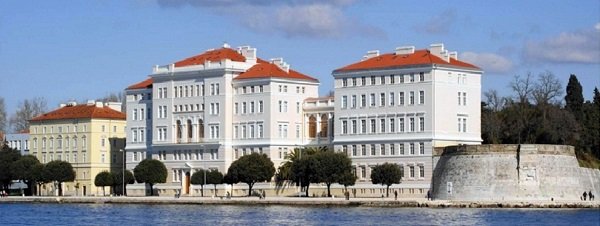
Croatian higher education institutions annually open their doors to school graduates, including foreigners. Croatian education is one of the best in Europe. Leaving school examinations can be taken in your home country or in Croatia. In addition to the Unified State Exam, for admission you must pass a language test and provide a certificate with grades. The cost of training is 800-4000 €/year and directly depends on the specialty. The lower price threshold is provided for humanitarians, the upper – for doctors.
Emigrating from Russia as a student is the best option for active and learning-loving young people who want to move to Croatia permanently. The student receives a temporary residence permit valid for 1 year with the right to extend. But there is one “but” - the period of study does not count towards the 5-year residence in the country required to obtain a permanent residence permit. But having a local diploma will help you gain a foothold in the country: quickly find a suitable vacancy and get a job immediately after graduation.
How to become a citizen of Croatia?
Despite the absence of significant restrictions on their rights, many immigrants strive to fully integrate into local society. In this regard, the question often arises of how to obtain Croatian citizenship for a Russian citizen. This opportunity is provided due to several reasons.
By birth
This circumstance automatically makes it possible to apply for a Croatian passport. To obtain the right to apply for citizenship in such a situation, a foreigner must have lived in the Republic for at least 5 years.
By origin
For children:
- adopted by Croatian subjects;
- whose one or both parents are citizens of this state;
- when mother and father are unknown.
For the last of these cases there is one addition. If it turns out that the child’s parents were found before he reached the age of fourteen, and they are of foreign origin, the issuance of a Croatian passport is cancelled.
By naturalization
One of the most common methods. Citizenship is granted to migrants who have lived here for at least 5 years due to the following circumstances:
- conclusion of a marriage union;
- employment;
- training;
- starting your own business;
- purchasing real estate.
In some cases, a Croatian passport may be issued without meeting the mandatory conditions if the applicant is characterized by achievements in the field of culture, sports, science, etc.
The process of obtaining a residence permit in Croatia
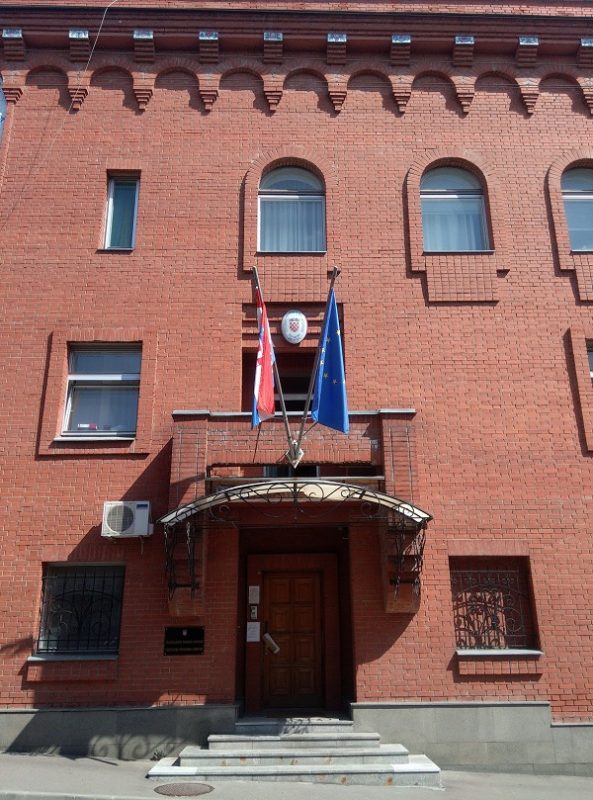
If we consider moving to Croatia in stages, we can distinguish the following steps:
- obtaining a long-term visa type D, which gives the opportunity to enter the country on legal grounds (it is also a temporary residence permit for up to 1 year);
- extension of temporary residence permit;
- obtaining a permanent residence permit;
- acquisition of Croatian citizenship.
A long-term visa is issued directly at the Croatian Embassy or through a visa center.
Documents must be submitted no earlier than 3 months before the desired moving date.
Required documents
To apply for a category D visa, you will need the following documents.
- Completed Type D visa application.
- Photos 3.5x4.5 – 2 pcs.
- Foreign passport and internal passport.
- Medical insurance (the amount of insurance must be at least 30,000 €).
- Certificate of income.
- Information about housing/rental availability.
- Certificate of good conduct.
- Confirmation of the basis for obtaining a visa.
- Receipt for payment of state duty.
Shortly before the expiration of the visa, you need to take care of its extension. To do this, you need to contact the local Ministry of Internal Affairs and bring a package of documents similar to the previous one.
After 5 (sometimes 3) years lived on the basis of a temporary residence permit, you can apply for a permanent residence permit. In this case, you must provide:
- information about rental or ownership of housing;
- confirmation of sources of income;
- a certificate of good conduct in Croatia;
- certificate of knowledge of the state language, laws and traditions of the country.
Children who lived with a parent in Croatia automatically receive permanent residence status if the parent's application is approved.
Cost of obtaining a residence permit
The cost of obtaining a long-term entry visa is 60 €. A residence permit, depending on the grounds, can cost 500-2500 € per person.
Deadlines for obtaining a residence permit
A visa is issued no longer than 1 month, an application for a residence permit is considered much longer - from 3 months. But usually the review takes up to six months.
Moving stages
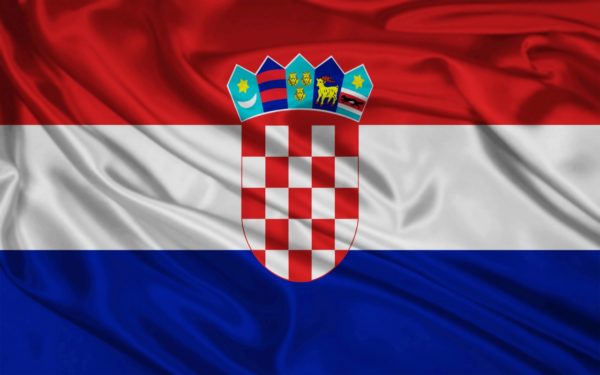
As with any other state, when immigrating to Croatia, foreigners must go through the following stages:
- obtain a residence permit;
- obtain a permanent permit;
- citizenship procedure.
More details about each of the above.
Registration of a residence permit
The requirements for obtaining a residence permit have become significantly stricter after the country joined the EU in the spring of 2013. Such a procedure must now fully comply with European standards.
To obtain a residence permit in Croatia, a foreigner will have to justify his intentions. The application must be accompanied by the following documentation:
- medical insurance policy;
- confirmation of the availability of housing - a reserved hotel room, rented apartment, etc.;
- a certificate of sufficient financial support - the minimum amount of funds in the account must be at least 60 euros for each day of the first two months.
In case of deviation from the above conditions, the applicant will be rejected.
permanent residence
To qualify for the next step, you must have lived in the country for at least 5 years. In the situation with a husband or wife who has the appropriate citizenship, the specified period is slightly shorter - 3 years.
To move to Croatia for permanent residence, a foreigner must have a regular income, housing and health insurance. The corresponding note about the positive or negative result of consideration of such an appeal is affixed to the international passport.
Acquiring citizenship
The final step is not at all necessary. Russians who have received permanent residence have almost equal rights. If an immigrant does not intend to participate in elections or find employment in government security forces, he can limit himself to formalized status.
To be granted citizenship, a foreign candidate must confirm knowledge of the language and national traditions, basic legislation and cultural characteristics.
Obtaining Croatian citizenship
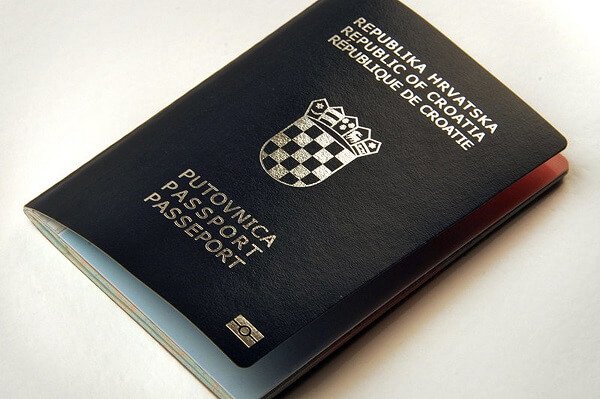
Typically, emigration from one’s native land ends with obtaining citizenship of the host country. But obtaining Croatian citizenship is not so simple - the candidate will have to renounce Russian citizenship. This causes inconvenience for Russian migrants, because after renouncing their previous citizenship, it will not be possible to obtain it again (if necessary) in an easy way - they will have to go through the entire path of naturalization, starting with obtaining a residence permit. Is the game worth the candle? Perhaps, because a Croatian passport allows you not only to travel around the EU countries, but to live and work in them.
In order to become a citizen of Croatia, you need to live in Croatia for 10 years (in some cases the period is reduced to 5 years). Then you can submit documents, the list of which is given below.
- Completed application.
- Residence permit.
- Certificate of good conduct.
- Lease agreement (ownership document) of housing.
- Information about income.
- Certificate from the Russian Consulate confirming the renunciation of Russian citizenship.
- International passport.
- Certificate from the police about the validity of the residence permit.
- Certificate obtained by passing language tests.
Children are given citizenship automatically if at least one parent is Croatian. The rule of soil here applies only to children born to stateless persons.
Standard of living of Russians after moving
It is noted that Croatia is not the most convenient option for emigrating from Russia. Salaries here are lower than in many EU countries, and the requirements for immigrants wishing to obtain a residence permit are just as stringent. Earnings are mainly seasonal - that is, ordinary people are involved in the service and tourism sectors, so they only have time to earn extra money in the summer. The rest of the time they live on the money they earn.
The unemployment rate is high – above 18%. The most profitable option for Russians is to open their own business. In other cases, it is unlikely that you will be able to make good money. For contract work, Russians choose the more developed countries of the European Union - Austria, Germany, the Netherlands, etc.
